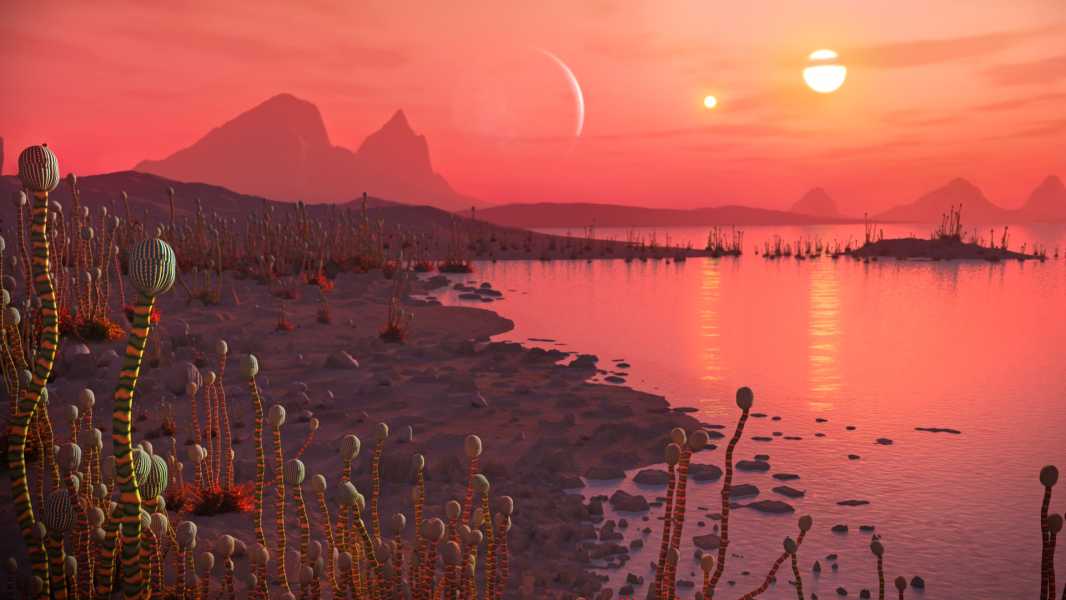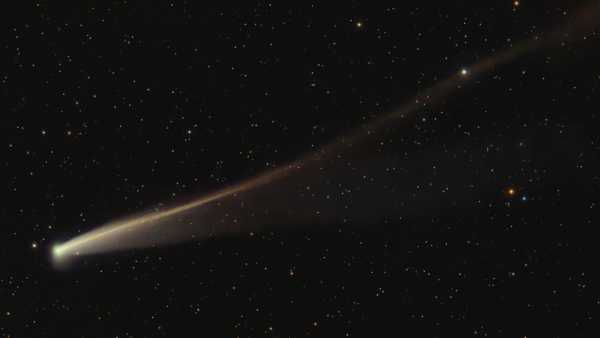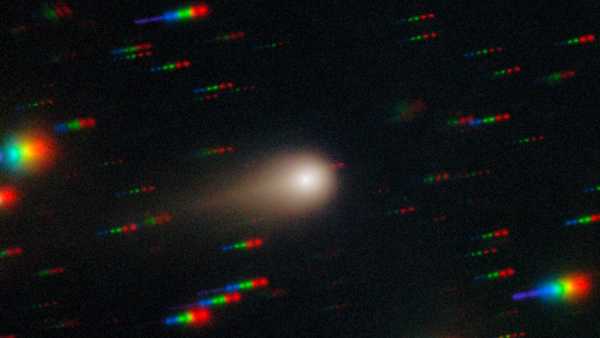
An artist's rendering of an alien ecosystem. (Image credit: Getty)
A new model suggests that the origin of human life was less unlikely than scientists previously thought, a discovery that raises the chances of intelligent life elsewhere in the universe, the researchers say.
It was previously thought that the emergence of human life on Earth required a series of “hard steps” – accidents of evolution that are highly unlikely to occur during the life cycle of the average star. This casts our position as intelligent observers of the universe as a rare phenomenon, and the likelihood of finding intelligent aliens is considered low.
But a new model challenges this long-standing assumption, suggesting that human intelligence was not a random event but rather the result of predictable geological processes. The researchers reported their findings Feb. 14 in the journal Science Advances.
“We argue that intelligent life may not need a series of lucky breaks to exist,” lead author Dan Mills, a researcher at the University of Munich, said in a statement. “Humans did not evolve ‘early’ or ‘late’ in Earth’s history, but ‘just in time’ when conditions were right. It may just be a matter of time, and perhaps other planets may reach these conditions faster than Earth, while others may take longer.”
First proposed by physicist Brandon Carter in 1983, the hard-step model attempts to explain why humans emerged on Earth so late in the life of the Sun, about 4.5 billion years into its 10-billion-year lifespan. Carter reasoned that intelligent life arose through a chain of highly unlikely evolutionary events—the formation of replicating molecules, the appearance of RNA and DNA, the evolution of multicellular organisms, and the invention of sex and language.
Carter's proposal quickly became a cornerstone of astrobiology, supporting the view that our own evolution was an exceptionally rare event and therefore the chance of encountering human-like creatures elsewhere in the universe is extremely small.
But that may be wrong, suggests a new study. By combining knowledge from physics and geobiology, they have examined the important steps that led to the evolution of life on our planet.
This led to a model that explains our origins through the successive opening of key “habitability windows,” such as oxygen and nutrient availability, ocean salinity, and sea surface temperature. According to this model, human life did not appear late on our planet, but simply when planetary conditions were optimal.
“We think that instead of basing our predictions on the lifetime of the sun, we should use the geologic time scale, because that’s how long it takes for the atmosphere and landscape to change,” said Jason Wright, a professor of astronomy and astrophysics at Penn State and a co-author of the paper. “These are typical timescales on Earth. If life is evolving with the planet, it will evolve on a planetary time scale at a planetary rate.”
To test this new hypothesis, the researchers have planned a series of research projects that include studying single-celled and multicellular organisms at extreme temperatures and oxygen levels to determine the range of conditions in which they might have arisen. They also propose scanning the atmospheres of distant exoplanets for key biosignatures, such as the presence of oxygen, and searching the evolutionary record for evidence that individual innovations on the path to human life (such as photosynthesis and eukaryotic cells) evolved more than once.
“This is a significant change in how we think about the history of life,” said co-author Jennifer Macalady, a professor of Earth sciences at Penn State. “It implies that the evolution of complex life may have less to do with luck and more to do with the interactions between life and its environment, opening up exciting new avenues of research in
Sourse: www.livescience.com





